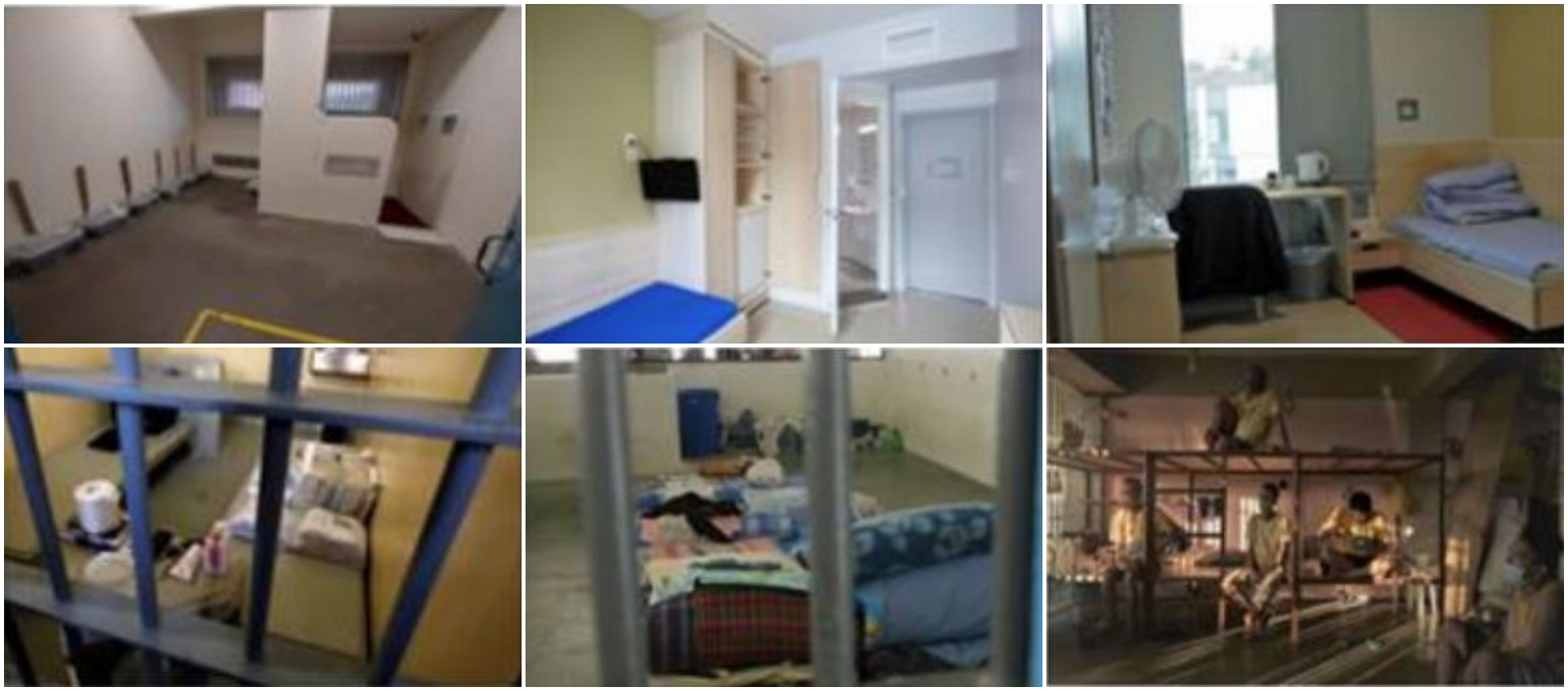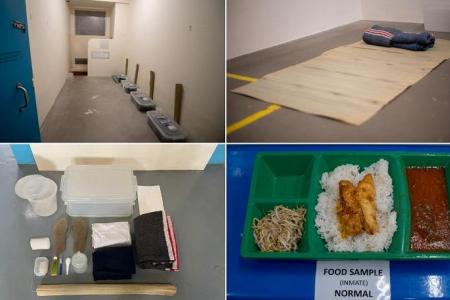Singapore's prison conditions acceptable; no fans and mattresses for safety reasons: Shanmugam
Prison conditions are assessed to be acceptable and the needs of prison inmates are being met, said Home Affairs and Law Minister K. Shanmugam in Parliament on Monday (July 4).
He was addressing issues raised about prison conditions, following interest generated in the wake of a documentary by CNA earlier in the year titled Inside Maximum Security.
Mr Shanmugam said several Members of Parliament had filed related questions and that from time to time there are questions raised on whether Singapore's prison conditions should be improved.
Speaking generally, he said there have been points made on overcrowding, the long periods of time inmates spend in their cells and the fact they sleep on straw mats.
He also highlighted points raised involving the case of David James Roach, the perpetrator of the Standard Chartered Bank robbery in 2016. It had been claimed Singapore's prison conditions would violate his human rights.
An expert witness had cited the lack of partition between living and eating spaces in cells, describing it aseffectively eating in the toilet and there was a lack of privacy when inmates used the toilet.
Mr Shanmugam said the UK courts found while the conditions of Singapore's prisons were not ideal, the defence counsel representing Roach failed to show Roach was at real risk of a breach of his rights.
Mr Shanmugam said Singapore's prison regime and prison environment are austere, intentionally so with a lot of emphasis on security and monitoring, so our officers know what is going on.
"This is because you get situations where inmates might try to do a lot of harm to themselves, get contraband, create security situations and other similar issues," he said.
The minister said Singapore has maximised its use of land amid scarcity, with land area taken up by the Changi Prison Complex built in the early 2000s, and drug rehabilitation centres.
Said Mr Shanmugam: "This is the footprint that we have.
"If we want to change it, a huge amount of money will have to be spent, probably running into billions of dollars, with more land taken. And whether that should be done depends on our assessment of the current conditions.
"Our assessment is that the conditions are acceptable, and fits in with our philosophy of how prisons ought to be. The essential needs of our inmates are also met."

Prisons in (clockwise from top left) Singapore, Norway, Denmark, the Philippines, Thailand and Hong Kong. PHOTOS: SINGAPORE PRISON SERVICE
Mr Shanmugam said there was no overcrowding in Singapore's prisons and they are operating at about 70 per cent, based on the Government's standards and assessments.
He said overcrowding was an issue in prisons in several other countries, and cited a report by the United Nations Office on Drugs and Crime which states 47 per cent out of 100 countries were operating at more than 100 per cent capacity.
But he asked for care when making comparisons between countries.
Describing cell conditions, Mr Shanmugam said all cells have toilet facilities in them and do not have fans in them but natural and mechanical ventilation instead.
This is because mounted fans could pose a security risk and act as potential anchor points for suicide. They could also be dismantled, with the parts potentially used as weapons.
Inmates sleep on a straw mat and two blankets instead of beds which are given only to inmates who require additional care - due to old age or mobility issues for example.
This sleeping arrangement minimises security risks, preventing inmates from hiding contraband items in the cells, said Mr Shanmugam, adding that mattresses for inmates are not ideal, generally due to hygiene issues.
Inmates are given three meals daily which are planned based on a dietitian's recommendation to meet nutritional requirements.
While it is Singapore's philosophy to keep the regime strict and austere, Mr Shanmugam said it was important to look at other factors like the recidivism rate and assault rate, in addition to prison conditions.
He said Singapore's two-year recidivism rates have remained low and stable, with the latest recidivism rate for the 2019 release cohort at 20 per cent, the lowest in the last 30 years.
The assault rate per 10,000 inmates - around 47 since 2019 - is low he said compared to other countries.
Mr Shanmugam also said that in some countries there is a hierarchy among the inmates, where some inmates are allowed to exercise control over other inmates and gangs of inmates are also often allowed to exert their power.
He said: "In Singapore, the position is quite different. Our prisons officers run our prisons, not gangs.
"Prisons are run in a fair and disciplined manner. We have a zero-tolerance stance towards gang-related activities. Assault rates between inmates are much lower.
"We try and maintain safety, order and discipline in our prisons. We want our inmates to be focused on rehab and turning their lives around, without having to live in constant fear for their personal safety."
Get The New Paper on your phone with the free TNP app. Download from the Apple App Store or Google Play Store now



